2021 EOSA Scholars
The following faculty members have been selected to participate in the 2020 Engagement and Outreach Scholars Academy program.
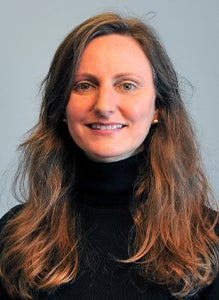
Associate Professor, Thomas Harriot College of Arts and Sciences, levialtstaedterl@ecu.edu
Altstaedter earned her doctorate in curriculum and instruction with a specialization in second language education from Virginia Polytechnic Institute and State University. Her research is framed within sociocultural theory and focuses on foreign language pedagogy and foreign language educator preparation. She is especially interested in foreign language teacher development and in how teacher beliefs impact instructional decisions. Her research on foreign language pedagogy focuses on heritage language development, second language learning, and student motivation. She is currently completing graduate studies in gifted education at ECU. Altstaedter is collaborating with Angela Novak on an EOSA project that seeks to examine identification and service provision practices for underrepresented students in AIG (academically and intellectually gifted) programs, with a specific focus on Hispanic and Latinx students. In addition, the project aims to provide resources and recommendations for school districts and Hispanic/ Latinx families in order to help address inequities with regard to Hispanic and Latinx students’ AIG identification and provision of services.
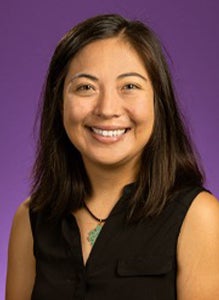
Assistant Professor, College of Engineering and Technology, bellna19@ecu.edu
Bell’s research takes an ecological engineering approach to development of water remediation and reuse strategies that inform decision-making within the water-energy-food nexus. Specifically, she investigates hydrologic and biogeochemical properties of green infrastructure, including constructed wetlands and subsurface bioreactors, which leverage the inherent mechanisms of microorganisms and plants to remediate point and nonpoint source pollutants. She has collaborated with the Greenville Utilities Commission Wastewater Treatment Plant since 2019 on resilient methods to further reduce nitrogen and phosphorus concentrations from wastewater. Through this EOSA effort, Bell hopes to strengthen her newly formed engaged research partnership with the GUC Wastewater Treatment Plant and gain insight into stakeholder perceptions of green infrastructure and barriers to their adoption. As a first-generation college graduate, daughter of an immigrant, and woman engineer, she also hopes to support increased participation of underrepresented students within the environmental engineering and water resources disciplines.
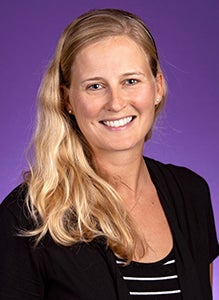
Rachel Gittman
Assistant Professor, Department of Biology and Coastal Studies Institute, gittmanr17@ecu.edu
Gittman’s research focuses on how humans modify the coastal environment and how best to manage or mitigate the ecological consequences of those modifications to sustain ecosystem structure, functions and services. Gittman is particularly interested in identifying novel approaches for conserving and restoring coastal habitats and supported services in the context of developed coastal areas (e.g. evaluating designs and implementation of living shorelines, testing the methods and criteria for successful ecosystem restoration). Through collaborations with community partners, including the North Carolina Coastal Federation and the North Carolina Coastal Reserve, Gittman is exploring the socio-ecological determinants of coastal protection decisions made by waterfront property owners, as well as identifying ecological, engineering, political and socioeconomic barriers to the implementation of natural and nature-based approaches to coastal protection. Gaining a better understanding of individual coastal protection decision-making along North Carolina shorelines will provide coastal managers with the information needed to develop new strategies for enhancing the sustainability and resilience of coastal communities and ecosystems.

Jarvis L. Hargrove
Associate Professor, Thomas Harriot College of Arts and Sciences, hargroveja19@ecu.edu
Hargrove serves as the co-director of the African and African American Studies Program. He received his doctorate in African history from Howard University in 2011. He brings substantial experience teaching undergraduate and graduate courses in Africa, African Diaspora, and Atlantic and African American history. Hargrove also has numerous publications, including a book, book reviews, journal articles and co-edited articles. He has previously published on several topics, including slavery, slave trading and migration. He is currently working a new manuscript, which is an analysis of Ashanti Pioneer/Pioneer Newspaper published in the Gold Coast and Ghana prior to and after independence arrived for the nation. Hargrove was a recipient of the Duke University-Mellon Foundation Digital Humanities Fellowship during 2016-2018 academic year. His EOSA project will examine African American communities of eastern North Carolina that emigrated abroad to Liberia in the 19th century. This project will engage with local community organizations, churches and historical societies to build digital maps and databases to document this population of individuals.
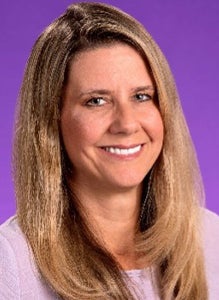
Professor, College of Human Health and Performance, hodgsonj@ecu.edu
Hodgson is the Nancy W. Darden Distinguished Professor in ECU’s College of Health and Human Performance. Hodgson was hired in August 2000 to co-design the first medical family therapy doctoral program in the United States. The program has graduated 39 students and is fully accredited by the Commission on Association for Marriage and Family Therapy Education. Her research interests are grounded in the biopsychosocial-spiritual framework with special attention to family engagement in healthcare teams. She is also committed to advancing integrated behavioral health care in primary, secondary and tertiary care settings, particularly for the underserved and uninsured in our region. She is passionate about innovations in community engagement practices, research and clinical care models that help to advance the accessibility, diversity, equity and inclusion (DEI) policies that govern our healthcare system and result in healthier and more welcoming communities for all. Her EOSA project, in collaboration with Amy McMillan and Ericka Lawrence, is to help design a community-campus partnership to advance the DEI footprint in the eastern North Carolina region.
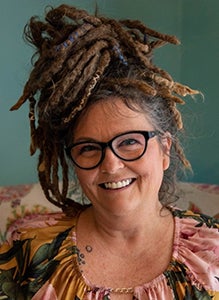
Professor, College of Business, mcmillana@ecu.edu
McMillan is the Copeland Director for Diversity and Inclusion and a faculty fellow in ECU’s College of Business. Her research focuses on diversity, organizational climate and corporate social responsibility. She has published in a variety of journals such as “Journal of Business Research,” “Group and Organizational Management” and “International Journal of Conflict Management.” McMillan is currently working with Jennifer Hodgson and Ericka Lawrence on their EOSA project. The project will explore diversity, equity and inclusion (DEI) issues faced by faculty, staff and students in the local community. Community partners will include various businesses, governmental organizations and non-governmental organizations. They will create a communities in action council with the goal to design a documented process or path for members of the community to find partners in ECU that can help with DEI issues. Even more importantly, the project will result in the development of ways to help ECU faculty identify partners in the community that can address DEI issues in the community.
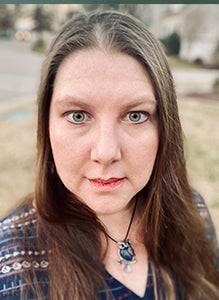
Assistant Professor and AIG Coordinator, College of Education, novaka17@ecu.edu
Novak earned her doctorate at The College of William and Mary in gifted education administration with a cognate in Higher Education. She researches professional learning, creativity, gifted collegians and play, all within the context of gifted education and through the lens of diversity, equity, inclusion and social justice. Her current EOSA project is an undertaking with Laura Levi Altstaedter. They are researching equity in gifted education, specifically Latinx and Hispanic underrepresentation in gifted programs in rural North Carolina. They will conduct a critical literature review, design and implement a research study, and provide a set of recommendations for families and the school district to ensure equitable identification of and service provision practices for AIG Hispanic/Latinx students. Findings will add to the body of research around the benefit of ongoing, systemic professional learning that is focused on equity, and how it can address the underlying cause of the disproportionality in gifted programs: white supremacy and racism.
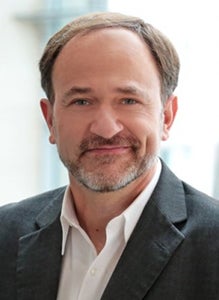
Assistant Professor, College of Engineering, popoviciuc18@ecu.edu
Popoviciu earned his doctorate in physics from the University of Miami and master’s in business from the University of North Carolina at Chapel Hill. He spent 22 years in the industry in both technology and management roles for Cisco Systems and later in two startups he launched and led to exit. After being an industry advisor for ECU’s Department of Technology Systems, he joined the department where he continues pursuing research and development work in the area of next generation information technology (IT) infrastructures and their use in solving real life problems. Popoviciu’s work covers high bandwidth networks supporting advanced, international research and low bandwidth, highly distributed networks supporting sensors. For his current EOSA project, he is engaging with small communities to provide scalable, sustainable and affordable IT infrastructures that will enable these communities to gain access to digital solutions to productivity, education and health problems.

Assistant Professor, College of Business, reidjos19@ecu.edu
Reid earned his doctorate in accounting from the University of Memphis. His research is concentrated in two areas: capital markets/firm valuation and pedagogical. His research focuses on examining how increased disclosure of fair value measurements affect liquidity and a firm’s cost of equity capital. His pedagogical research focuses on leadership and personal development strategies and the systemization of factors that lead to sustainable success. This research bridges the fundamental principles found in psychology, neuroscience and management science to optimize business decision making. Reid’s current EOSA project and partnership with Building Hope allows him to further focus his efforts towards assisting the current and next generation with developing and honing leadership skills necessary to attain sustainable success in their future endeavors.
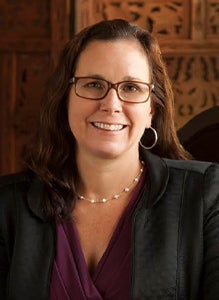
Assistant Professor, College of Education, soulenr19@ecu.edu
Soulen earned her doctorate in curriculum and instruction with a cognate in library science from Old Dominion University. Her research focuses on school libraries and public library children’s services, specifically collaborations between librarians and teachers and children’s access to library materials. She teaches school and public librarianship concentration students in the library science program. Soulen partners with the ECU Community School, whose mission is to educate the whole child. Here experience as a school librarian offers the opportunity to support the Community School faculty by developing digital teaching and learning competencies and increase access to information literacy and media resources.
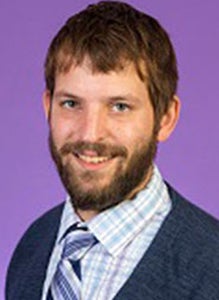
Assistant Professor, Thomas Harriot College of Arts and Sciences, walfields16@ecu.edu
Walfield earned his doctorate in criminology and justice studies from the University of Massachusetts Lowell. His research focuses on the criminal justice’s response to sexual violence, particularly policies impacting sex offenders within the community and law enforcement’s response to reported sex offenses. His current EOSA project is a qualitative study examining the barriers to successful re-entering and re-integrating into the community for justice-involved individuals and their families as well as what is working, particularly in light of how COVID-19 has impacted the justice system.
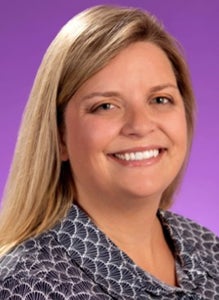
Assistant Professor, College of Health and Human Performance, yeagere18@ecu.edu
Yeager’s research focuses on sustainable community development through tourism and recreation. Her EOSA project aims to develop a Tar-Pamlico River Basin Blue Economy Corridor in eastern North Carolina. Visitors and residents will be able to curate experiences within the corridor through a digital interactive map featuring assets in the eastern portion of the Tar-Pamlico River Basin which would extend through Tier 1 and Tier 2 counties (e.g., Edgecombe County, Nash County, Pitt County, Beaufort County). This corridor unifies hospitality, environmental and socio-cultural assets in this segment of the Tar-Pamlico River Basin towards the goal of regional sustainable community development.